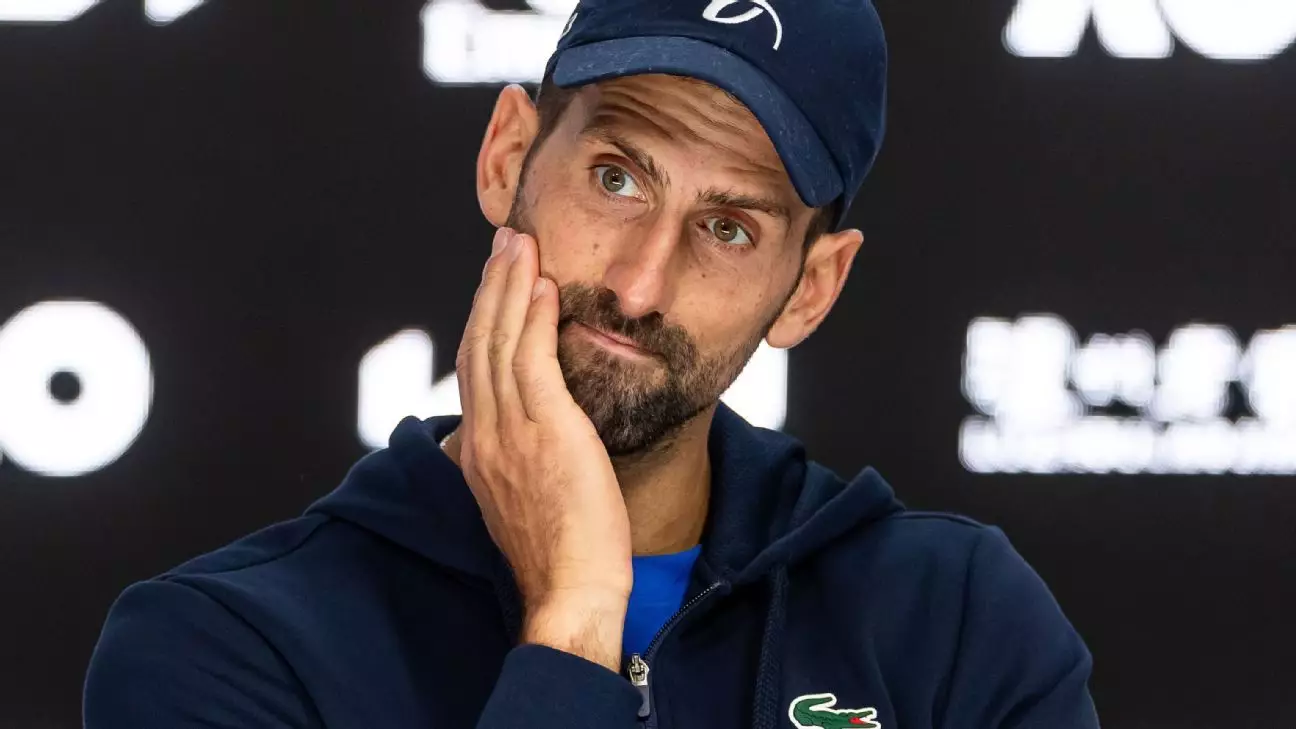In a recent press conference leading up to the Miami Open, tennis superstar Novak Djokovic reflected on the ongoing antitrust lawsuit initiated by the Professional Tennis Players’ Association (PTPA), an organization he co-founded. Djokovic emphasized a critical gap in the sport’s governance—specifically the significant power disparity between players and the controlling bodies of tennis. He expressed a desire for increased player representation and a fairer share of revenue, posing essential questions about equity and influence within the sport.
Seeking Collective Action Amidst Controversy
The PTPA’s lawsuit, filed in federal court, seeks to challenge what it describes as a “cartel” dynamic among the men’s and women’s tours, the International Tennis Federation (ITF), and integrity agencies dominating the sport’s operations. The association argues that players are subjected to unfair pay structures and working conditions, which do not reflect their contributions to the sport’s burgeoning revenue. Djokovic highlighted that while he chose not to be a plaintiff in this lawsuit to encourage other players to stand up for their rights, his intentions stem from a commitment to enhancing the status of players globally.
This internal rift could potentially reshape the landscape of professional tennis, but not without its criticisms. Young talent Carlos Alcaraz openly condemned the lawsuit, expressing concerns about being involuntarily tied to its arguments, highlighting the risk of misalignment between players’ voices and the actions purportedly taken in their names. Such instances reflect deeper issues of communication and transparency among players regarding organizational decisions.
Balancing Victory with Integrity
The delicate balancing act between advocating for player rights and maintaining harmony within the sport is a testament to Djokovic’s understanding of tennis’s complex dynamics. Although he supports enhanced rights for players, he also seeks reconciliation among tennis’s governing bodies. His comments underline a growing dichotomy between the need for collective player action and the fear that such actions might foster division, ultimately undermining the sport’s integrity.
Furthermore, the dialogue necessitates a broader evaluation of how tennis can cultivate a more equitable environment for all participants. The PTPA reportedly engaged with over 250 players to garner support, but the mixed responses indicate a lack of consensus regarding this approach. This suggests that while the quest for justice and equity is crucial, the methods employed to achieve these goals need more deliberation and unity among players.
Influence and Representation: A Call for Reform
Djokovic’s insistence on elevating player influence is central to this conversation. The financial models currently in place often favor organizational interests over players’, leaving many feeling undervalued despite their contributions to the sport’s prosperity. He expressed views that resonated with many when he stated that the players’ share of revenues isn’t just a matter of prize money but extends to a myriad of issues affecting athletes’ livelihoods and careers. It’s a complex issue that transcends superficial demands for increased earnings—it involves foundational changes in how the sport is structured.
The ongoing lawsuit serves as a pivotal moment for tennis, presenting an opportunity to critically evaluate existing power dynamics and explore paths forward. As the tennis community grapples with these challenges, one can only hope that the conversations ignited by athletes like Djokovic lead to meaningful changes that foster a more equitable tennis landscape for future generations. The desire for empowerment is not just about winning—it’s about ensuring that all players have a voice and are treated justly within the sport they love.

